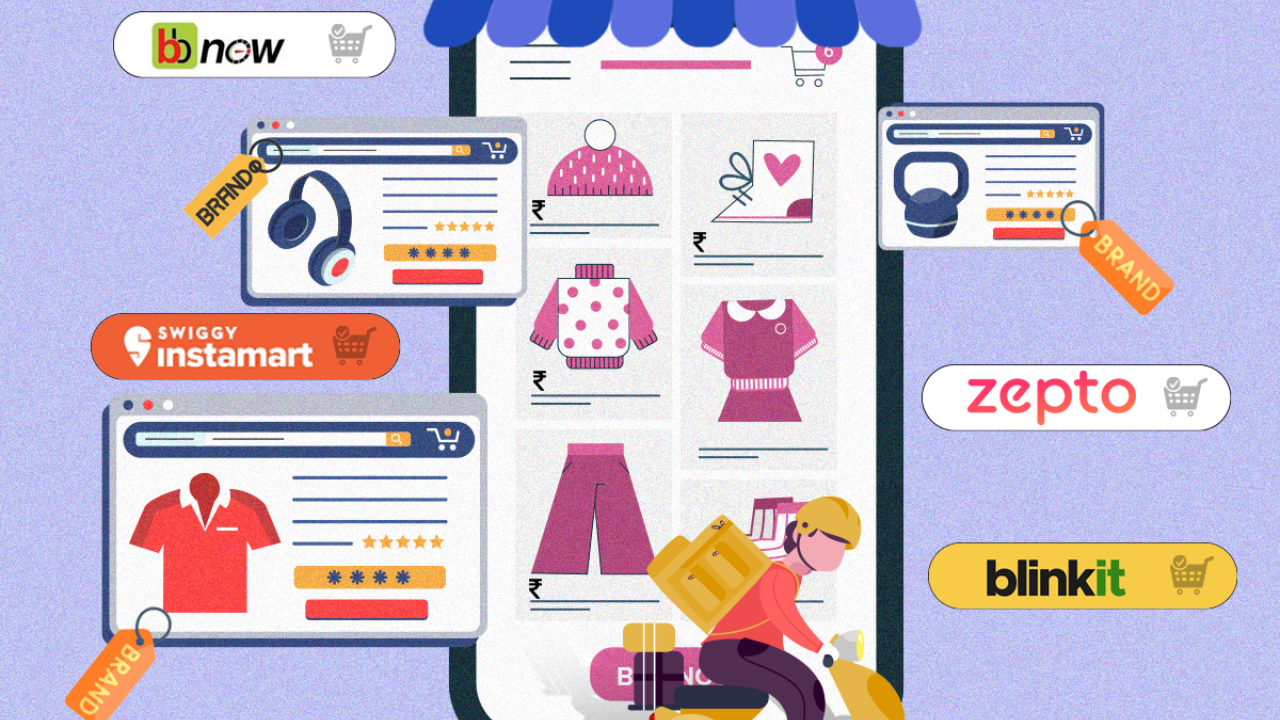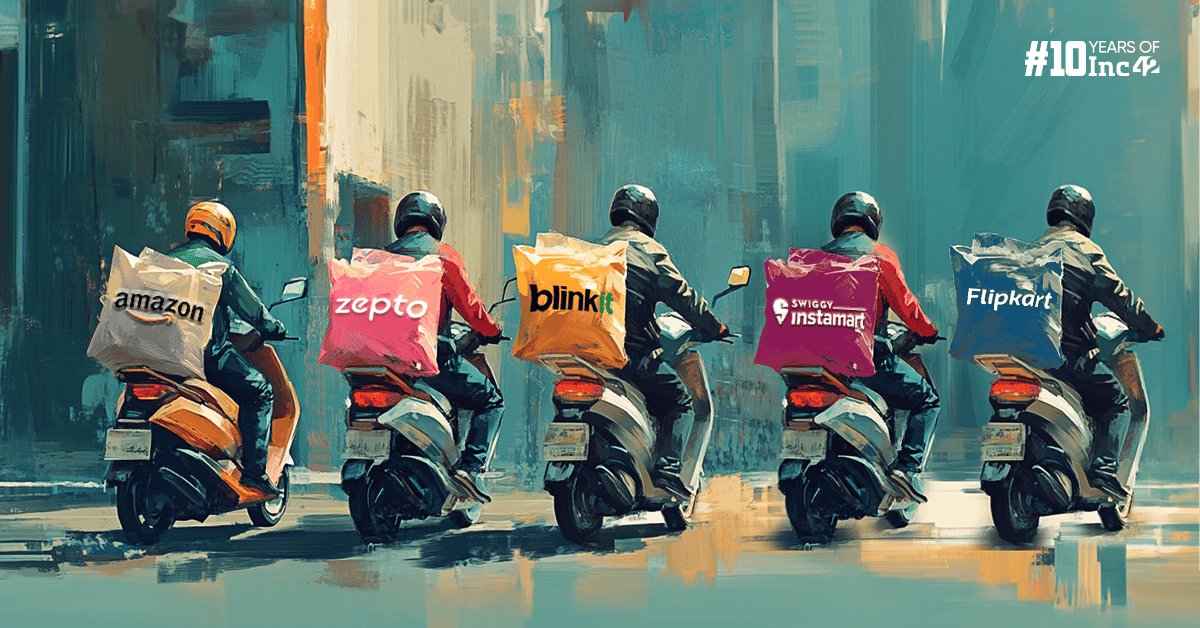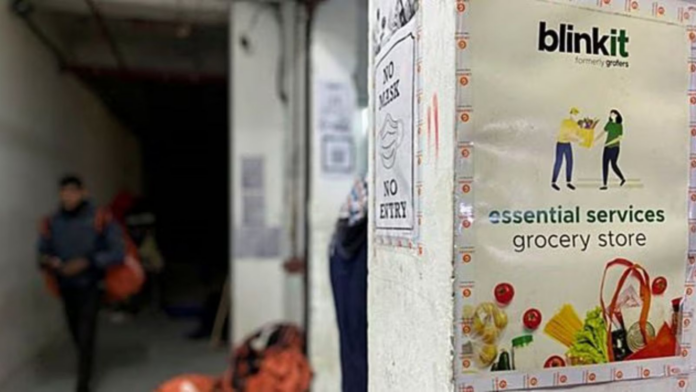A major conflict is brewing in the fast-evolving quick commerce space as the All India Consumer Products Distributors Federation (AICPDF), representing over 400,000 retail distributors, has taken a firm stand against quick commerce giants like Blinkit, Swiggy, and Zepto. The distributors have accused these platforms of engaging in predatory pricing, making it nearly impossible for traditional retailers to compete or survive. In a recent letter, the AICPDF has urged the Competition Commission of India (CCI) to investigate these companies for their pricing tactics that are shaking the retail landscape.
The Allegations of Predatory Pricing
The AICPDF alleges that Blinkit, Swiggy, and Zepto are offering deep discounts on consumer products, often selling them below cost to attract customers to their platforms. While these discounts may appear to be beneficial to consumers in the short term, the Federation argues that they are crippling local retailers.
By selling products at prices that traditional retailers can’t match, these quick commerce companies are accused of leveraging their vast capital reserves to undercut smaller businesses, leading to an unfair advantage. This has led the distributors to seek intervention from the CCI to safeguard the interests of traditional retailers who play a crucial role in India’s supply chain.

What is Predatory Pricing?
Predatory pricing is a tactic where companies lower the prices of their products to unsustainable levels, often below the cost of production, to eliminate competition. Once the competition is weakened or forced out of the market, these companies typically raise prices again to recoup their losses. This practice is widely considered anti-competitive and is subject to regulatory scrutiny.
The distributors are concerned that if predatory pricing continues unchecked, it will lead to the monopolization of the quick commerce sector by a few major players, ultimately harming both consumers and the broader retail ecosystem.
Impact on Traditional Retailers
According to the AICPDF, the deep discounts offered by Blinkit, Swiggy, and Zepto are devastating local retailers. In a market where price sensitivity is high, small retailers cannot afford to match the steep discounts offered by these well-funded startups. The traditional retailers argue that they don’t have the financial muscle to absorb losses in the same way these venture capital-backed quick commerce platforms can.
“We are struggling to keep our businesses afloat,” said one distributor who wished to remain anonymous. “These quick commerce platforms are selling products below cost. How are we supposed to compete with that? If this continues, many of us will be forced to shut shop.”

The Role of CCI in Addressing the Issue
The Competition Commission of India is tasked with ensuring fair competition in India’s markets. The CCI can investigate companies for anti-competitive practices such as predatory pricing and, if found guilty, impose penalties or demand changes in business practices.
The distributors are urging the CCI to investigate Blinkit, Swiggy, and Zepto to determine whether their pricing strategies are violating competition laws and hurting smaller businesses. The AICPDF hopes that by bringing this issue to the CCI’s attention, necessary actions will be taken to create a level playing field in the market.
The Quick Commerce Boom and Its Consequences
Quick commerce platforms have rapidly gained popularity in India, especially during the COVID-19 pandemic, as they provide the convenience of delivering groceries and essentials within minutes. Startups like Blinkit, Swiggy’s Instamart, and Zepto have emerged as dominant players, fueled by massive investments and aggressive marketing strategies. However, this rapid growth has come at a cost.
By offering unbelievably low prices, these companies are attracting customers at an unprecedented rate. However, such pricing strategies are unsustainable in the long term and can disrupt the entire retail ecosystem. The AICPDF’s concerns highlight a larger issue that the rapid growth of quick commerce might be doing more harm than good, particularly to the small businesses that form the backbone of India’s economy.
Consumer Reactions and Long-term Effects
While customers may be enjoying the benefits of heavily discounted products, many are starting to question the long-term effects of these practices. If traditional retailers are driven out of business due to unsustainable pricing, consumers may eventually face limited choices and even higher prices once these platforms gain dominance over the market.
This raises the question: Is the convenience of quick commerce worth the potential collapse of traditional retail? The distributors are calling for action now to prevent future monopolies in the sector, which could ultimately hurt consumers.
)
Blinkit, Swiggy, and Zepto’s Response
As of now, neither Blinkit, Swiggy, nor Zepto has issued a public response to the AICPDF’s allegations. However, experts believe that these companies might argue that their pricing strategies are part of a broader market disruption aimed at benefiting consumers in the long term.
Industry insiders suggest that quick commerce platforms are relying on economies of scale and discount-backed marketing strategies to rapidly acquire customers. They argue that these companies may not be engaging in predatory pricing but are instead transforming traditional retail through innovation and efficiency.
Conclusion: The Future of Quick Commerce
The AICPDF’s appeal to the CCI has ignited a debate about the ethical and economic implications of deep discounting in the quick commerce sector. While platforms like Blinkit, Swiggy, and Zepto have undoubtedly changed the way Indians shop for essentials, the disruption caused by their business models is becoming a cause for concern.
As the CCI probes the allegations of predatory pricing, the future of quick commerce in India could be in for a massive shakeup. Whether these companies are forced to alter their pricing strategies or not, one thing is clear: the battle between traditional retail and quick commerce is far from over.

